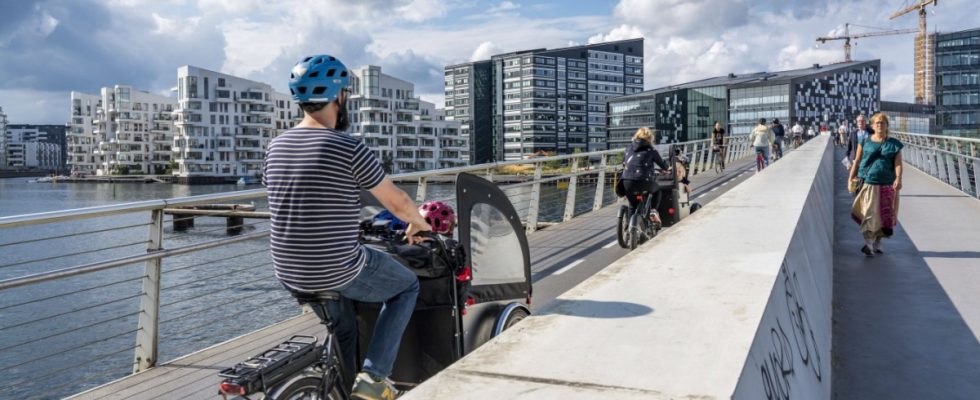From a Munich perspective, Copenhagen is pretty high up on the map. The Northern Lights come up with all sorts of funny ideas. The cargo bike was invented in Copenhagen’s rebellious Christiania district, and most of the ring roads around the harbor had to make way for new cycle lanes and pedestrian zones. Now the Danish capital also wants to ban combustion cars from 2030 onwards. This will be examined specifically with regard to social compatibility and the expansion of charging options. Are they really serious about climate protection?
Something like that would be unthinkable in Munich. To be clear: Copenhagen lacks a functioning opposition to environmental protection. All parties in the city council supported the so-called “zero-emission zones”. Even the Association of Automobile Importers is in favor of it. The importers? You have to imagine that: Last but not least, these are the local car manufacturers, who have already prepared for an electrified future in Copenhagen. It’s as if BMW were demanding a “zero emissions zone” within Munich’s Altstadtring.
Sure, it’s a great deal for automakers to see people switch to new electric cars. But that would still be unimaginable in Munich, because the city prefers to discuss Euro 5 diesel. Does nobody in Copenhagen understand that many Munich residents want to sue for their customary right to continue polluting the city center with high levels of nitrogen oxides? And that they are of course supported by the CSU – the party from which the transport ministers come who never really worked through the diesel scandal?
What Copenhageners could learn from local motorist parties: how to prepare lawsuits against planned bans on combustion engines. This could certainly be delayed for a few more years through court action. But what the Germans are really unsurpassed in: being against a ban on combustion engines from 2035 with a two-thirds majority and at the same time demanding a high priority for environmental protection with a two-thirds majority, as a publication by the Federal Environment Agency with the beautiful title “25 years of environmental awareness research in the environmental department” currently shows.
Environmental protection is a kind of yo-yo game in Germany. Concern always rises when man-made disasters become acute. That was the case with the nuclear meltdowns in Chernobyl and Fukushima, but also shortly after German reunification, when the legacy of the GDR became public. In the meantime, the alarm mood subsides a little, the pulse and the feeling of environmental danger sink. And the old diesel will do for a few more years.
The author drives a diesel. But with Euro-6, outside the city – and mostly full of garden waste to the recycling center.
(Photo: Bernd Schifferdecker (Illustration))

